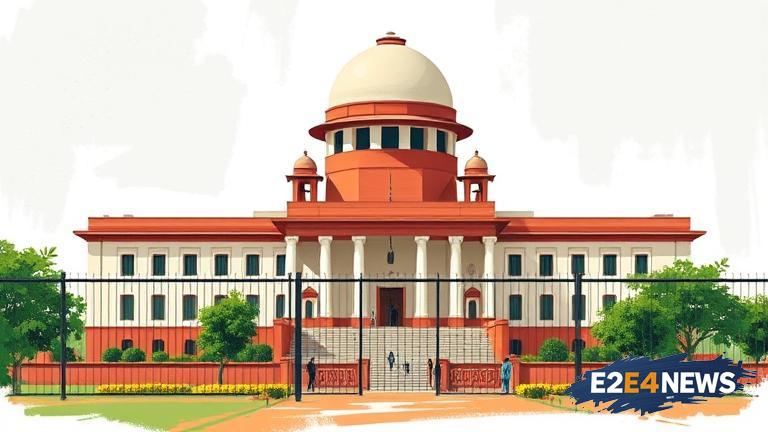The Supreme Court of India has recently emphasized the need for framing common rules that would govern the release of terminally ill prisoners. This move is seen as a significant step towards ensuring that the rights of such prisoners are protected and that they are treated with dignity. The court’s directive comes in response to the varying practices adopted by different high courts across the country, which often lead to inconsistent decisions. The lack of uniform guidelines has resulted in confusion and unfair treatment of terminally ill prisoners, who may be eligible for release on compassionate grounds. The Supreme Court has recognized the importance of having a standardized framework that would enable the authorities to make informed decisions regarding the release of such prisoners. The court’s decision is expected to have far-reaching implications, as it would bring consistency and fairness to the process of releasing terminally ill prisoners. The move is also seen as a step towards upholding the principles of humanity and compassion, which are fundamental to the Indian justice system. The Supreme Court has directed the Centre to frame common rules in consultation with the states, which would ensure that the rights of terminally ill prisoners are protected. The rules would also provide a clear framework for the authorities to follow, reducing the scope for arbitrary decisions. The court’s decision has been welcomed by human rights activists, who have long been advocating for the rights of prisoners. The move is also expected to reduce the burden on the judiciary, as it would provide a clear guideline for the release of terminally ill prisoners. The Supreme Court’s directive is a significant development in the Indian justice system, as it would ensure that the rights of all prisoners, including those who are terminally ill, are protected. The court’s emphasis on compassion and humanity is also a reminder of the importance of treating all individuals with dignity and respect. The framing of common rules would also ensure that the process of releasing terminally ill prisoners is transparent and fair, reducing the scope for corruption and arbitrary decisions. The move is a significant step towards reforming the Indian prison system, which has long been criticized for its harsh conditions and lack of compassion. The Supreme Court’s decision is expected to have a positive impact on the lives of terminally ill prisoners, who would be able to spend their remaining days with dignity and comfort. The court’s emphasis on the need for common rules is also a reminder of the importance of having a standardized framework for the release of prisoners, which would ensure that the rights of all prisoners are protected.
